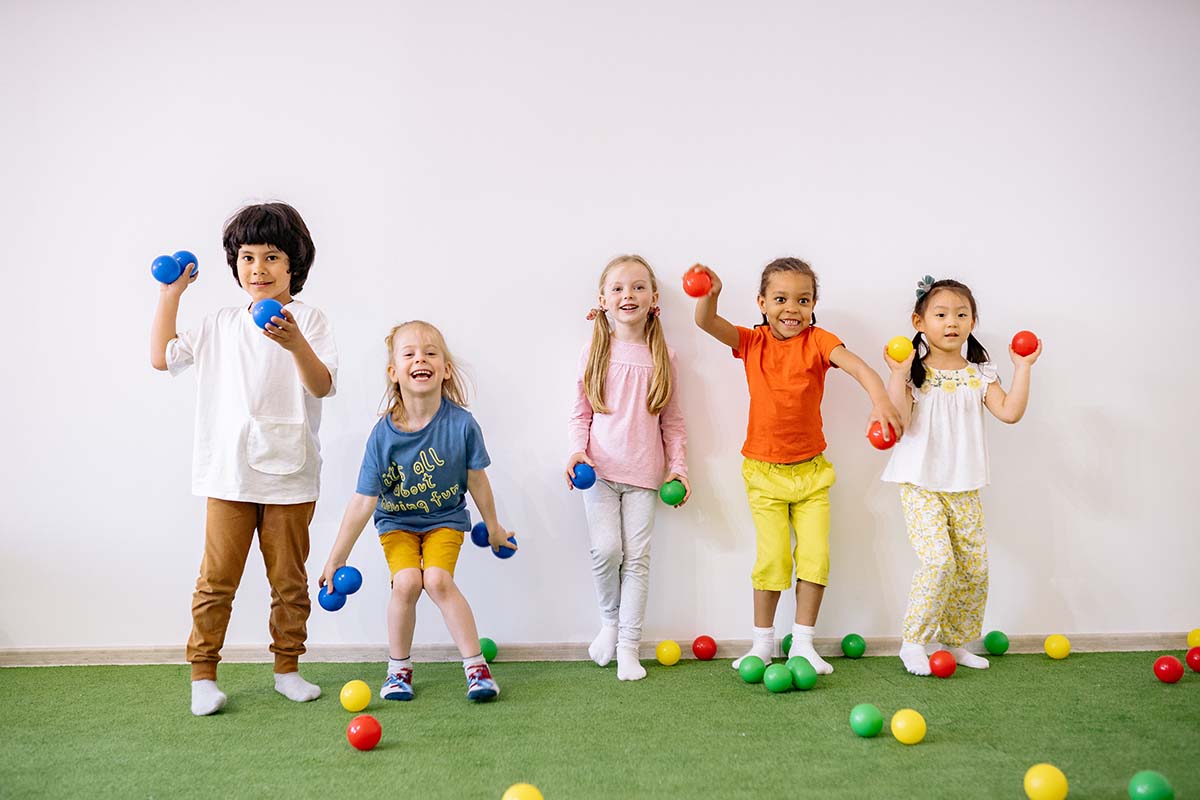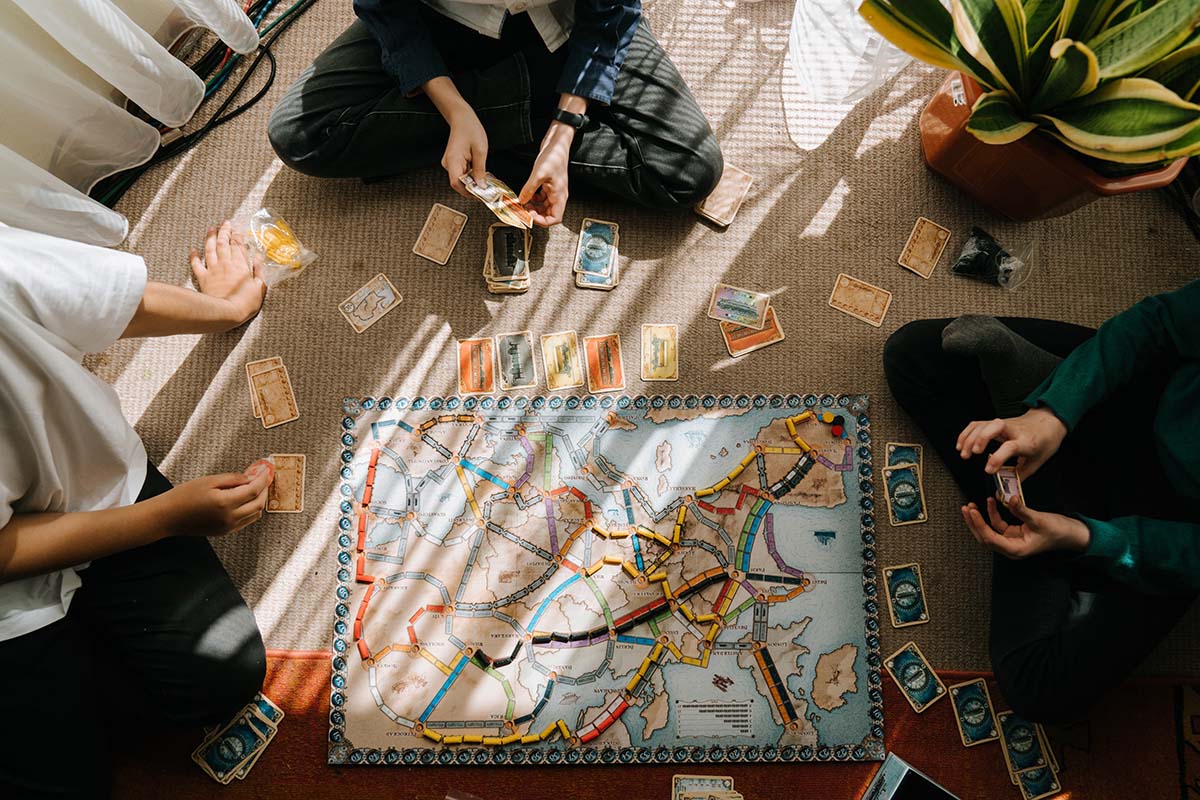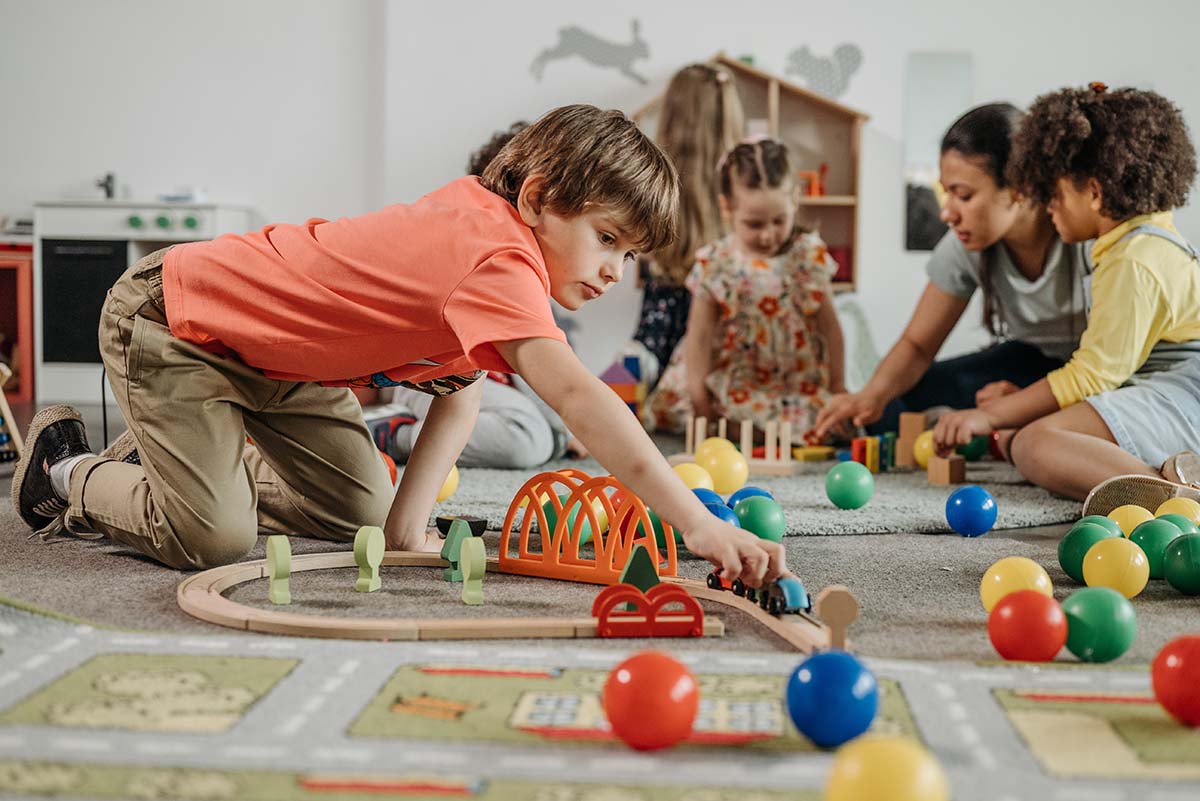
Remember the “good old days”? The familiar expression contains a degree of truth, with some of our fondest memories coming from playtime during our childhood. We can still think back to the days when we played hopscotch or catch! But play isn’t just about fun — it plays a crucial role in learning and skill development for children. Here’s learning through play isn’t just important but essential.
Learning through play (it’s a thing!)
Play may seem simple, but it’s a natural and powerful way to facilitate learning. Engaging in play is fun, which, in turn, provides cognitive benefits such as enhanced working memory, improved attention, and better stress regulation. When children learn through play, they have the opportunity to pursue their natural curiosity. As they play, they build skills they’ll keep for life.
Play is one of the most important ways children learn. Research suggests that learning through play helps achieve learning at a deeper level. When asked by U.S. News Stephanie Jones, a professor of early childhood development at Harvard University’s Graduate School of Education mentions the benefits of learning through play. “Promoting curiosity, exploration and creativity, play provides children with the opportunity to practice important executive function and self-regulation skills.” Here are some ways learning through play can help students get a stronger connection with new knowledge and skills.

Play improves academic performance
Who says that the solution to doing better in school has to be boring? Play-based learning has been shown to have a direct impact on math and literacy skills. Imagine a restaurant-themed math activity where children role play as cashiers and customers ordering food. Through play, children practice their communication and math skills while calculating payments, giving change, and working together. Play-based activities such as these create opportunities for children to develop their skills in a fun and natural way, while also linking their experience to the real-world context.
Play facilitates socio-emotional development
Academic skills aren’t the only ones that matter. Skills like communication, persuasion, and public speaking are vital for success in project work and future careers. By engaging in play, children naturally connect with others, and this fosters their socio-emotional development in the process. Starting early on allows them to hone these skills while they are young, and benefits them in the long run.

Play fosters creativity
The ability for children to be creative, to be able to freely try out new ideas and make whatever activity they are doing their own, fosters important mental development milestones. Children can be presented with math challenges such as measurement, balance, and building shapes while using blocks. Through creative play, children develop new ways of thinking and problem solving. Whether your child is a budding artist or scientist, creativity is a treasured skill as it helps people come up with innovative solutions.
Play. Learn. Thrive.
After learning more about play and the benefits it brings, it is undeniable that playtime is essential for your little ones. Learning through play not only supports socio-emotional development in children, but also boosts their academic skills and creativity. It’s essential for parents to set aside time for play and be actively involved in your children’s exploration of the world around them. After all, this is one of the best ways to learn!
Want more tips to help your child pick up math skills? Check out our Pintrest for more blogs and fun ways for your kids to learn through play! If you’re looking for an engaging and immersive math experience for your child, sign up for a free trial today.




